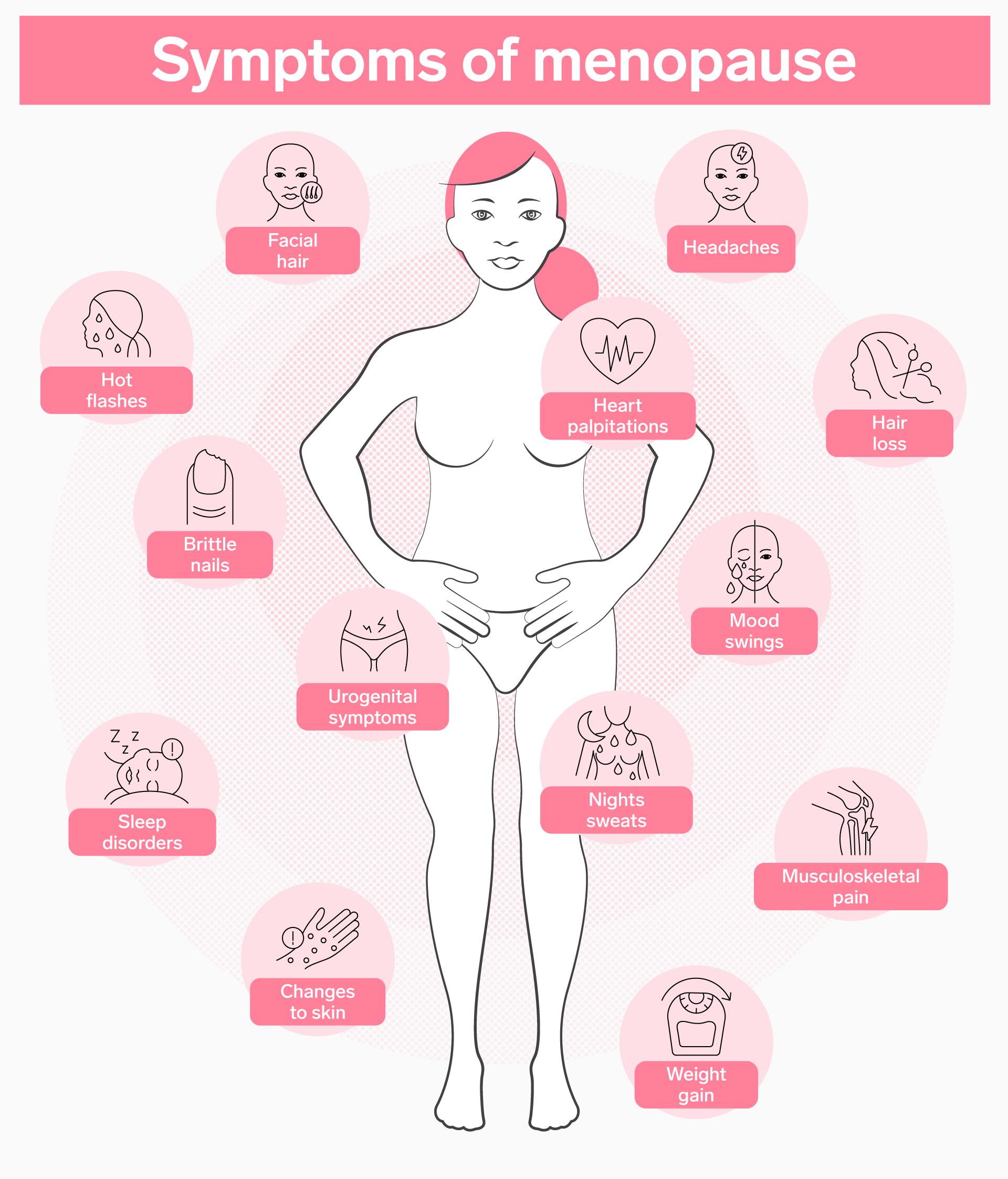Specialist Advice — 3 minutes
Relieving menopause symptoms
October 7, 2024


What is menopause?
Menopause is defined as the complete, permanent stopping of menstruation for more than 12 months; that is when menopause is said to start. No laboratory tests are required or helpful to confirm menopause.
Perimenopause is the time starting before menopause and ending one year after menopause. There are no tests to confirm the start of perimenopause.
Menopausal transition is the time prior to the last menstrual period and is evident by the variations in the menstrual cycle associated with the onset of symptoms that a woman may have for about 5 years. Some women, however, will experience the symptoms into their 60’s. Post-menopause is the time starting after the last menstrual period.
What are the symptoms of menopause and how can you relieve them?

What?
- A sudden feeling of intense heat, often accompanied by sweating and a red face
Who?
- Affects 85% of women during menopause
- On average, hot flashes and night sweats do not last beyond the first five years after the end of menstruation
Possible relief?
- Stop smoking
- Aim for a healthy weight
- Exercise for at least 150 minutes a week
- Avoid hot drinks and alcohol
- Combat stress (meditation, relaxation, etc.)
What?
- Frequent need or urgency to urinate
- Repeated urinary tract infections
- Vaginal dryness may start
- Possible burning sensation during intercourse
- Dyspareunia, meaning pain during and after intercourse, may start
- Possible vulvar itching
Who?
- Up to 50% of women aged > 60 years are affected
Possible relief?
- Aim for a healthy weight
- Practise good hygiene when urinating (behavioural changes in response to urinary needs)
- Attend physiotherapy sessions for pelvic floor health
- Undergo functional electrical stimulation
- Pick a medical treatment (antimuscarinic)
What?
- Difficulty falling asleep or staying asleep
- Waking up too early or tired, falling asleep during the day
- Insomnia, fatigue, difficulty concentrating or memory problems
Who?
- 30% of women (average age: 59 years)
Possible relief?
- Screen for sleep disorders, including sleep apnea
- Practise strict sleep hygiene
- Establish a routine, avoid stimulants in the evening, limit screen time before bed
- Musculoskeletal pain: bone, joint and muscle pain
- Headache or migraine
- Average weight gain of 10 kg between ages 40 and 60, regardless of menopause, but increased intra-abdominal fat and waist size are related to menopause
- Bleeding after 12 months of no menstrual bleeding
- Mood swings
- Heart palpitations
- Skin changes, including reduced elasticity, increased wrinkles, slower healing
- Hair loss and appearance of facial hair
- Brittle nails
Once these tips have been implemented and healthy lifestyle habits established, menopause symptoms may decrease in intensity, depending on the woman. Chatting with your doctor will determine the best solutions for you. Hormone therapy is one of the solutions and may be very effective for alleviating the symptoms of menopause. However, it is not necessarily suitable for all women and may even be contraindicated for some. For that reason, hormone therapy must be fully discussed and the woman’s health considered before it is prescribed.
